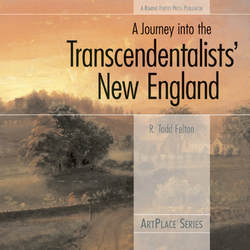Читать книгу A Journey Into the Transcendentalists' New England - R. Todd Felton - Страница 25
На сайте Литреса книга снята с продажи.
Unitarianism vis-à-vis Transcendentalism
ОглавлениеAlthough Unitarianism and Transcendentalism are clearly linked, there are some important differences between the two. First, the Unitarianism of the nineteenth century was an established religion supported by Harvard Divinity School as well as by an increasing number of churches, ministers, congregations, and associations across New England. Transcendentalism, in contrast, was expounded by a loose affiliation of philosophers, ministers, writers, and social activists who believed in many of the same ideas but differed radically in other ways.
Of the many subtle differences between Unitarianism and Transcendentalism, perhaps the most notable was one of mere degrees: the Transcendentalists felt that Unitarianism did not go far enough in embracing the passionate and intuitive communion with the Divinity they believed was an integral part of all people. They often characterized Unitarianism as too rationalistic and lacking warmth; Emerson went so far as to call it “corpse-cold.” For their part, the Unitarians were uneasy with the criticism of organized religion inherent in many of the Transcendentalist stances.
In more recent times, the Unitarian establishment, especially after its merger with the Universalists in 1961, has embraced those same philosophers who were ostracized for their radical views in the nineteenth century. The Unitarian Universalist website now features biographies of ministers including Channing, Parker, Emerson, and Ripley, who in their day had contentious and rocky relationships with the church. The website also devotes space to more secular Transcendentalists such as Bronson Alcott, Nathaniel Hawthorne, and Henry David Thoreau.
